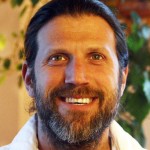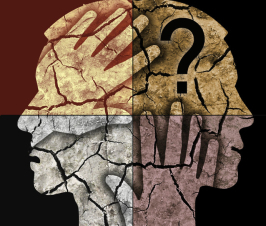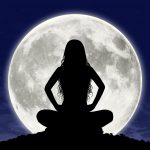By Dr. Moshe Daniel Block, ND, HMC
One weekend while I was staying in a hotel in Tempe Arizona to teach my course Holistic Counseling – The Vis Dialogue at SCNM, I was watching television. A commercial came on advertising Viagra. During the commercial the following phrase was stated;
“Ask your doctor if your heart is healthy enough for sex.”
When I heard that, my jaw dropped. I thought to myself, “Is this how bad it’s gotten?”
When I hiked the suicide trail in Grand Canyon National Park, there were signs at the top warning the hiker that if they were not in good physical condition to turn back – Do not proceed on the hike. That was the sagest advice anyone could ever receive. It could save someone’s life because that trail is murderous. If they had said, “Consult your doctor before hiking the suicide trail,” I could understand that. But has it gotten so far that one has to ask a doctor if it’s okay for them to have sex? How does a doctor even assess whether or not a person’s heart is healthy enough for sex? Moreover, what kind of sex are they talking about? The next question that came to my mind was, “If someone’s heart is ailing at all, couldn’t some good old-fashioned hanky panky do them some good?”
If anyone feels they need to ask their doctor if they can have sex, for any reason, they need to have their head examined. The next thing we will be doing is asking our doctors if it’s okay to laugh or cry or sing. This question is indicative of the misguided situation that is representative of the reality of the mentality for a very good portion of our society. Doctor fix me. Doctor tell me what to do. We look back and shake our heads in disbelief at some of the medieval practices of our earlier doctors like bloodletting and drilling holes in people’s heads to let out the demons when they have headaches. When we collectively realize that the responsibility for our health lies in our own hands, the idea that we need to ask our doctors about the most basic instinctual activities of life will appear equally medieval.
People hold their doctor’s opinion in such high regard that they fear disappointing their doctor or not following their every whim. When I work with my patients, I will often times want them to come off their drugs, especially the ones that aren’t doing anything except making them toxic, subdued, and like a zombie. I also like to have people come off their drugs because the subtler healing cannot happen when the symptoms are straight-jacketed by a powerful pharmaceutical agent that is just suppressing the symptoms. When I suggest this to the patient, some of them cringe in fear and anxiety, terrified about the prospect of even suggesting it to their doctor. It’s like the doctor is holding the bag of dog food and the patient is the hungry puppy dog hoping to please its master to get another morsel to eat.
How did we get here? How have people forgotten that the doctor is not the one that should make the last call on just about anything concerning our health? It’s fine to get a doctor’s opinion. It’s great to get a second and a third opinion.
But the final opinion and the first opinion always comes from the self, from the patient. A patient should not feel obligated to justify or answer to their doctor. In my practice and my life, I have witnessed the unfortunate situation that exists out there in the masses. The people still feel they need the doctor. Ok. The doctor is in high demand. The waiting list is very long. They fear they may never get another doctor to follow their case if they cross the doctor. Or question the doctor. Or decide not to follow through with the doctor’s recommendations. The doctors in many of these cases threaten to remove the patient from their list of clientele if they do not do exactly as the doctor says. Sit and be a good little dog or you won’t get any of your kibbles and bits.
Of course not every medical doctor is this way. Some are very gentle and humble, and work for the best of the patient, not for their own egos. But this discussion is important to have because people don’t seem to realize that the responsibility for their health lies in their own hands. And that is such a simple truth. How can it ever lie in the hands of another? As such, they don’t need to please their doctor. They are not there to serve their doctor, so no patient should ever feel bad if they are guided to act in a way unapproved of by their doctor.
The fundamental question that everyone should ask themselves when faced with a serious health situation is, “How do I feel about this course of action? Is this what my heart and soul feel is the correct path for me?” Patients that are very sick that may have cancer or some advanced form of illness often have families that naturally want them to recover in the most expedient fashion possible. But whose decision is it in regards to the health of the sick person? When a patient makes a choice about their health they must do so for their own self and what they feel is right for them. The decision may include the complex picture of their family life but the decision is theirs to make. (The exception to this would be children under a certain age and in emergency situations where the person is not capable of deciding for themselves.) I have seen quite a few cases where a patient wishes to follow a certain way, often outside the box of what their loved ones would rather see them do. When loving family members see their loved ones ill, they become afraid and they often don’t know anything better aside from conventional medicine. So they turn in their fear to the fear-based medicine. I’ve seen patients not want to follow that path and grapple with this profound struggle about what to do. Follow their heart and soul or listen to everybody else?
It’s not an easy decision by any means. But it may be the most important decision of a person’s life and best they make it themselves.
So next time you’re tempted to ask your doctor if you can have sex, stop. Ask yourself. (Oh, and best if you ask your partner as well.)
 Moshe Daniel Block, ND, HMC is the author of The Revolution of Naturopathic Medicine: Remaining True to Our Philosophy, a book about the philosophy and practice of naturopathic medicine. He graduated from the Canadian College of Naturopathic Medicine (Toronto, Ontario) in 2000. Dr. Block then went on to complete the Homeopathic Master Clinician course with Louis Klein, FSHom, in 2003. He specializes in autoimmune illness and myasthenia gravis, a disease he was personally diagnosed as having and from which he has healed himself. He teaches the very wisdom and knowledge that helped him heal himself and others in his Holistic Counseling course for NDs, students, and other health care professionals. Some of the other projects Dr. Block has worked on can be found at his private practice website, his book website, and his global website.
Moshe Daniel Block, ND, HMC is the author of The Revolution of Naturopathic Medicine: Remaining True to Our Philosophy, a book about the philosophy and practice of naturopathic medicine. He graduated from the Canadian College of Naturopathic Medicine (Toronto, Ontario) in 2000. Dr. Block then went on to complete the Homeopathic Master Clinician course with Louis Klein, FSHom, in 2003. He specializes in autoimmune illness and myasthenia gravis, a disease he was personally diagnosed as having and from which he has healed himself. He teaches the very wisdom and knowledge that helped him heal himself and others in his Holistic Counseling course for NDs, students, and other health care professionals. Some of the other projects Dr. Block has worked on can be found at his private practice website, his book website, and his global website.


















Great article Dr. Block! People DO need to take control of their health decisions. No one knows your body better than you do…take control folks!